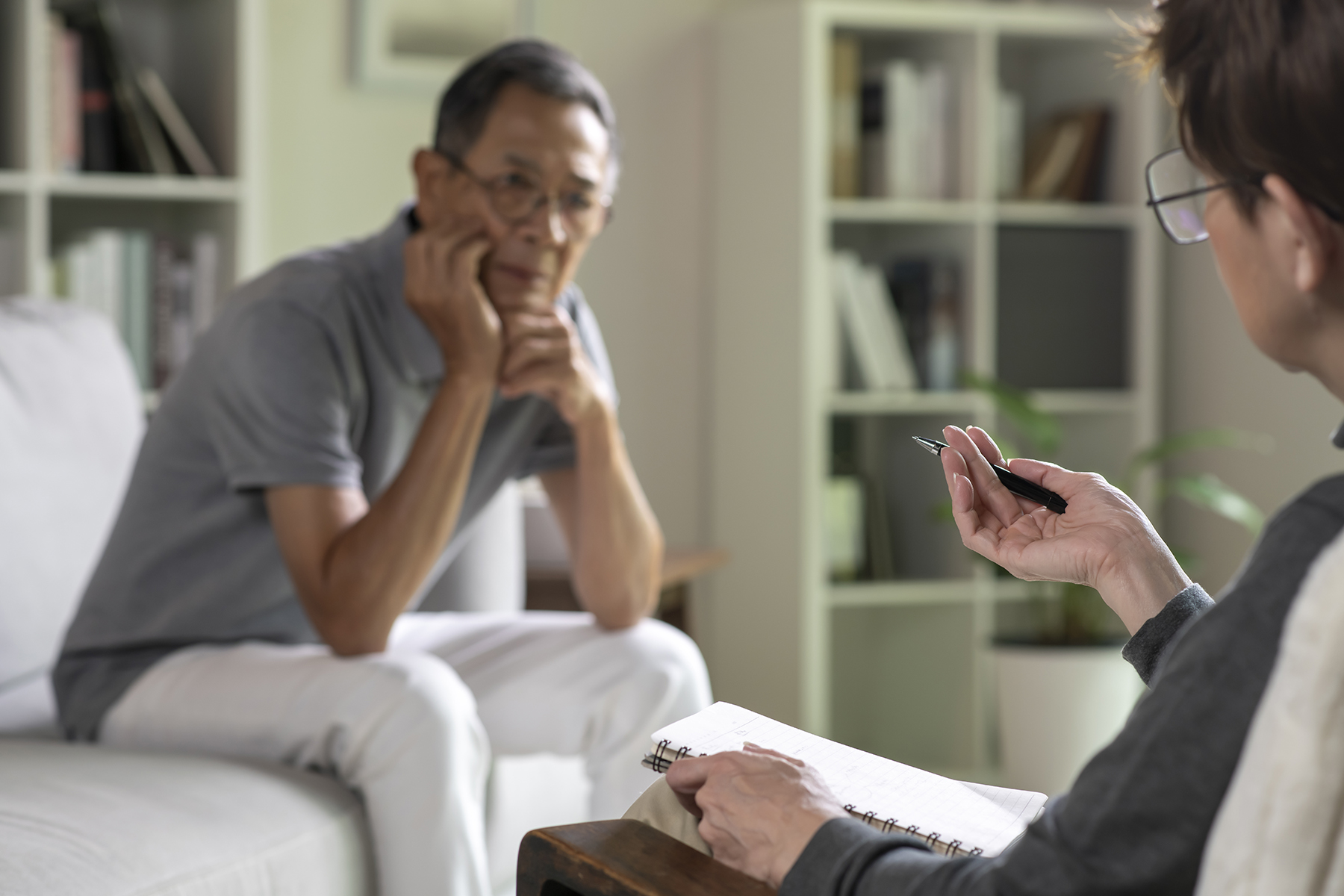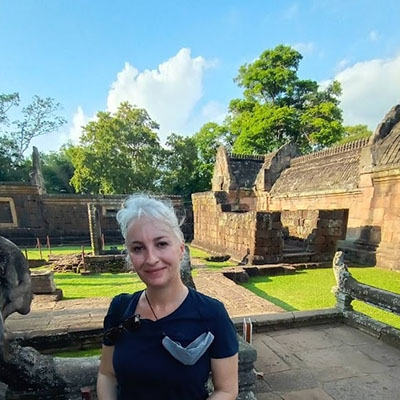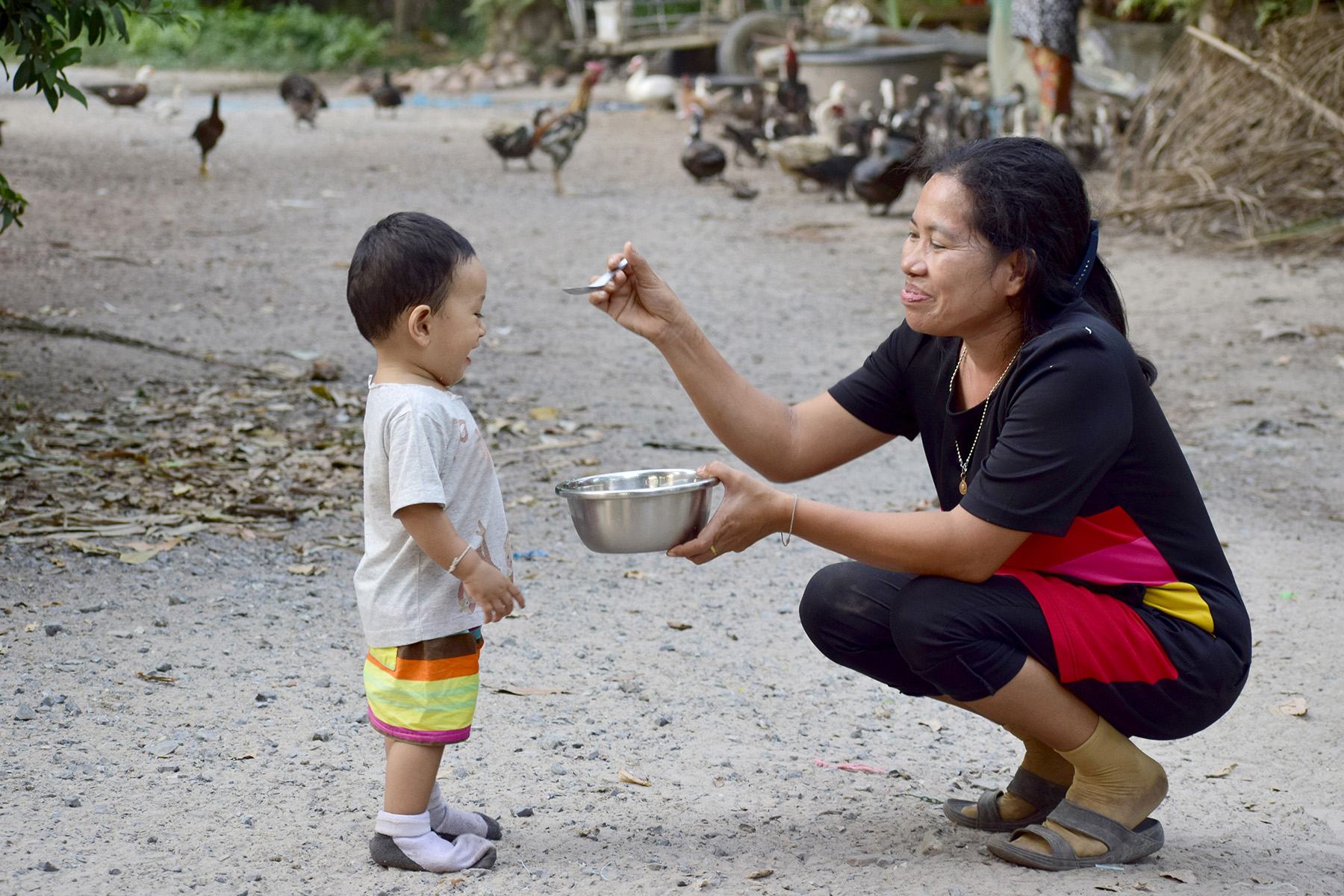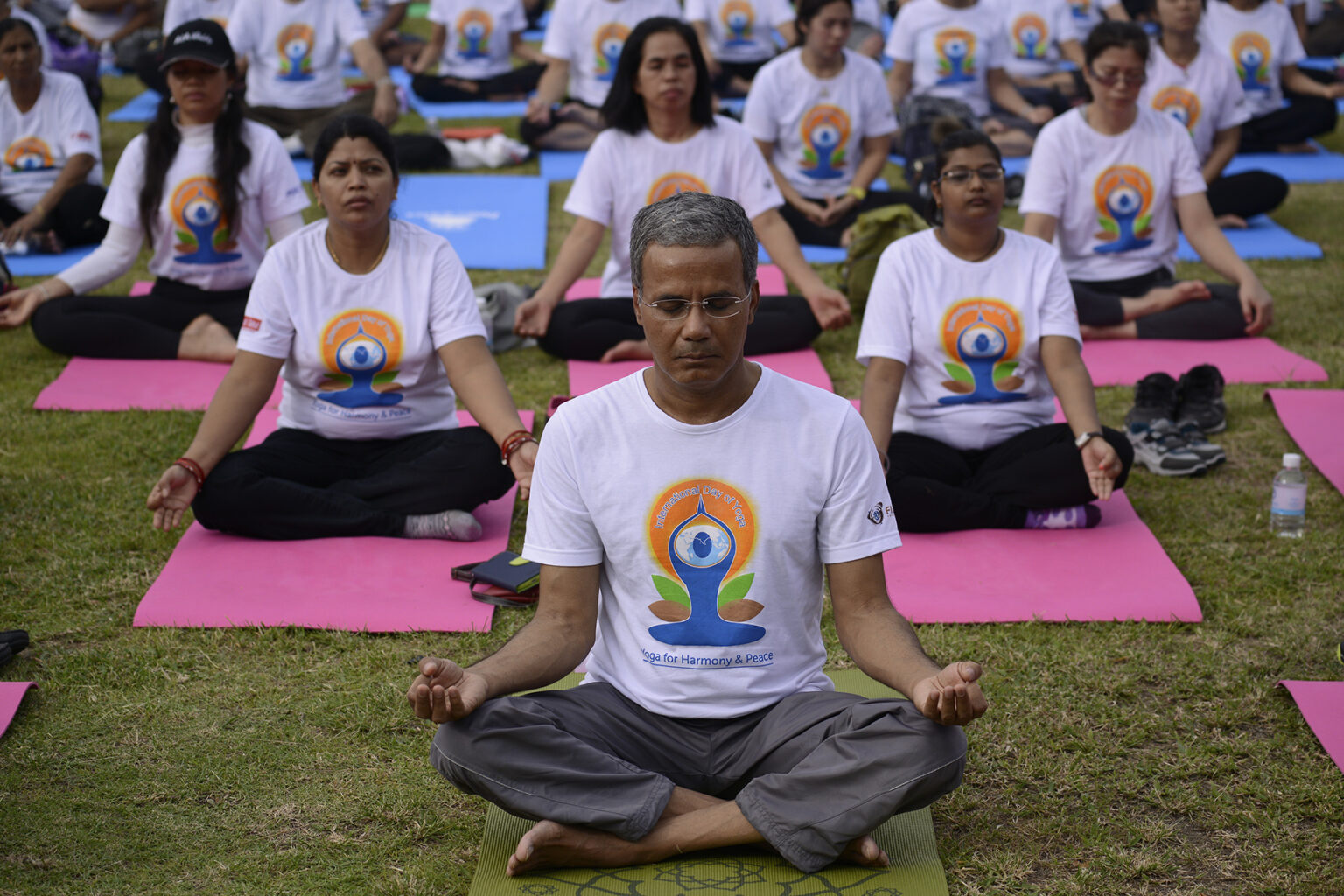Thailand offers a mix of public and private mental health services. Thai nationals are typically covered under the country’s Universal Health Coverage (UHC), while most expats access care through private providers, often with the help of international health insurance. Language and availability can vary between regions, but mental healthcare is increasingly recognized as an important part of overall well-being.
Learn how to navigate Thailand’s mental healthcare landscape by exploring these topics:
- How does mental healthcare work in Thailand?
- How to access mental health services in Thailand
- Does health insurance in Thailand cover mental healthcare?
- Psychologists, psychiatrists, and therapists in Thailand
- Drug and alcohol addiction services in Thailand
- Thai services supporting people with eating disorders
- Thai mental health services for severe symptoms and long-term conditions
- Thailand’s mental healthcare for children and young people
- Mental healthcare services for special groups
- Emergency support and crisis lines
- Useful resources
Allianz Care
Allianz Care is a world leader in providing international health insurance. Their various premiums provide professionally designed solutions for a variety of expat lifestyles. So, wherever your life takes you, make sure you have the right health protection for you and your family with Allianz Care.
How does mental healthcare work in Thailand?
The Ministry of Public Health (กระทรวงสาธารณสุข) and its Department of Mental Health (กรมสุขภาพจิต), in particular, are responsible for coordinating Thailand’s state mental healthcare services. These include psychiatric departments with teams of mental health practitioners at general and specialist psychiatric hospitals.
All Thai citizens and residents covered by the social security scheme can access the public healthcare system, where most services are free or highly subsidized. This includes free access to mental healthcare and psychotropic medication.

If your job doesn’t cover you for state healthcare, as many don’t, private health insurance is mandatory for all expats. This is also the preferred way for foreigners to access healthcare services in Thailand as it opens access to private and international hospitals with extended psychiatric services and English-speaking health professionals.
How to access mental health services in Thailand
You need a referral from your doctor to access public mental health services and then book an appointment with the relevant specialist.
Unfortunately, Thailand’s public healthcare system severely lacks psychologists and psychiatrists. This equates to a waiting time of up to six months. In response, general practitioners can treat disorders like anxiety, alcohol and drug abuse, and depression as part of their primary care.
International residents can generally access mental health services faster at private clinics in Thailand, with multilingual practitioners and psychiatric appointments and shorter waiting times. No referral is necessary to book a psychologist or psychiatrist privately at one of these clinics.
Does health insurance in Thailand cover mental healthcare?
Thailand’s public healthcare system is only accessible to citizens and residents who make social security contributions. Under this national healthcare system, Thais can access mental health services for free at state hospitals, including psychiatric units.
Expats who pay social security can access some limited subsidized healthcare. However, even Thais who can afford it prefer to pay for private healthcare due to the better services, facilities, and convenience.
You can avoid Thailand’s lengthy waiting lists for psychiatric appointments by taking out private insurance, which covers independent clinics and international hospitals with multi-lingual practitioners, including English. However, these hospitals are most prevalent in urban areas like Bangkok, where demands are higher.
When you look for health insurance, make sure your policy includes mental health services or add additional coverage to your plan.
Some of the leading private health insurers in Thailand include:
Psychologists, psychiatrists, and therapists in Thailand
Psychologists, psychiatrists, and therapists/counselors are all available in Thailand. However, these may differ in scope from what you are used to.
Psychiatrists
Strictly speaking, psychiatrists are medical professionals. These doctors undergo at least three years of specialized training following a medical degree. They are the most prevalent mental health professionals in Thailand.

Most psychiatrists work within the national healthcare system and only part-time at private clinics outside these hours. As a result, psychiatrists are regulated within Thailand’s public healthcare system and represented by the Royal College of Psychiatrists of Thailand (ราชวิทยาลัยจิตแพทย์แห่งประเทศไทย) and Psychiatric Association of Thailand (สมาคมจิตแพทย์แห่งประเทศไทย).
You need a referral to see a psychiatrist within the public system but not in the private sphere. These private psychiatric clinics can diagnose and treat a wide range of mental health issues, including depression, bipolar disorder, and addiction.
Psychologists
In Thailand, psychologists are members of the paramedical profession. This differs from many other countries where psychologists are licensed and operate clinical practices.
Instead, clinical psychologists are employed primarily as aids to psychiatrists in Thailand. They can prescribe medication but only under a psychiatrist’s supervision. Moreover, training usually requires a bachelor’s degree with no medical or postgraduate qualifications.
Despite these differences, you will find psychology practices in urban areas like Bangkok – similar to Europe or the United States. However, they’re not as regulated. Counseling psychologists tend to focus on behavioral issues through talking therapies like cognitive behavioral therapy (CBT), a relative newcomer to Thailand’s healthcare landscape.
Therapists
Therapists or general mental health counselors do not require formal training and are not regulated. However, you’ll find therapists throughout urban centers who display their qualifications clearly in their practices. They are often accredited by international bodies outside of Thailand.
Therapists are also frequently geared towards Thailand’s expat or non-Thai-speaking community but have become more popular among Thais.
You can book an appointment at a counseling clinic, where you’ll find services like trauma therapy or life coaching. Always look for therapists who hold reputable qualifications and several years of training.
Drug and alcohol addiction services in Thailand
Thailand has been criticized for over-incarceration of substance users in the government’s war on illicit drugs. Historically, people struggling with substance dependence could only access three forms of rehabilitation:
- Voluntary (in a medical setting)
- Compulsory (as part of their sentence when arrested for possession)
- Prison

The recommendation is to move away from the punitive approach to one of multidisciplinary treatments, offering a more comprehensive range of therapy options, including:
- Detoxification
- Rehabilitation
- Psychological care
- Peer support
The UHC does include treatment services for substance disorders and addiction, where psychiatrists can prescribe medication and psychologists provide counseling. However, due to stigmatization, people struggling with alcohol and substance dependence have reported discrimination by healthcare workers.
In response, the National Addiction Treatment and Rehabilitation Committee supports the new mandate that health service providers’ training must include a better understanding and sensitivity around substance disorders.
Available services
If you’re struggling with addiction, you can seek support and information from community-led programs, like Alcoholics Anonymous (AA) Thailand and the Ozone Foundation in Bangkok.
You can also access services at some of Thailand’s leading hospitals, like the Bangkok Mental Health And Rehabilitation Center. Narcotics Anonymous is a support group for people struggling with drug addiction or recovery, with regular meetings (in English) across Thailand.
Across the country, you will find private rehab centers – primarily residential – to help patients detoxify and receive counseling. Remember that the Ministry of Public Health must license these facilities; otherwise, they are illegal.
Your best option is to discuss your issues with your doctor, and they will refer you to the most relevant services. However, there are various public services and free 24-hour helplines available, such as:
| Number | Service | Language |
| 1323 | Mental health advice and support | Thai |
| 1300 | Social Assistance Center Hotline | Thai |
| 1387 | Child Helpline International | Thai/English |
| 02-113-6789 | Samaritans Thailand | Thai/English |
Thailand has also become a successful rehab tourism location as its addiction centers provide effective treatment. These services are, expectedly, not covered by insurance and can be very expensive.
Thai services supporting people with eating disorders
Eating disorders are prevalent but underreported in Thailand. While available data does recognize a pervasiveness among adolescent women and girls, eating disorders can affect anyone. These complex mental health issues can cause potentially severe physical and psychological issues when left untreated.

Proper treatment usually involves counseling, monitoring, and nutritional education. Sometimes, psychiatrists may also prescribe medications.
Thailand’s public psychiatric services (e.g., Bangkok Hospital Eating Disorder Clinic) can offer therapy, but private counseling and treatment centers are also available. For example, New Counselling Services (NCS) in Bangkok has specialized psychotherapists who offer multilingual services, including English, Thai, Dutch, German, Cantonese, Mandarin, and Japanese.
Unfortunately, self-help groups aren’t as active in Thailand as in other countries, leading expats to international online resources, such as:
Thai mental health services for severe symptoms and long-term conditions
Long-term mental health conditions may include schizophrenia, bipolar disorder, and personality disorder, and these often come with severe symptoms that can affect the person’s daily life.
When voluntarily seeking psychiatric help, treatment at public hospitals is free. Still, the chronic shortage of hospital beds has seen patients waiting in ICUs and hospital lobbies before being housed in a psychiatric ward. Indeed, you’ll be able to access private treatment quicker, but it is more expensive.
Other programs that involve more counseling and therapeutic activities (e.g., cooking, art, and gardening) alongside the medication regimen seem to have better results. Community centers, like the Living Recovery Center, help people to readjust to life outside psychiatric hospitals and institutions.

Local expert
Jane Evans
Insider tip
When you relocate to Thailand, you can bring up to 90 days’ worth of prescribed psychotropic medication. However, you must register with a local psychiatrist to continue your treatment after you’ve settled. Before you travel to Thailand, check the legality of bringing your medicatio into the country.
Thailand’s mental healthcare for children and young people
Thailand is implementing programs, workshops, and campaigns to promote awareness and broaden access to help for children’s mental healthcare issues. These include outlets like BuddyThai (บัดดี้ไทย), an online app that allows children to talk about bullying and its effects on their mental health.
The Ministry of Education and Thai Health Promotion Foundation also promotes healthcare in schools, which includes mental well-being. As a result, Thailand has increased screening and implemented school-based programs to support early identification of poor mental health. For example, teachers use the School Health HERO (ฮีโร่สุขภาพโรงเรียน) to assess mental health risks and access psychiatric experts.

Thai charities have recognized the growing need for safe spaces where children can discuss their mental health. It also launched a nationwide campaign targeting 10- to 24-year-olds. The Every Day is Mind Day uses influencers to break the stigma and encourage young people and their caregivers to talk about their mental health.
Thailand has psychiatric hospitals and units (private and public) specializing in child and adolescent mental health services, for example:
- Child Development Neuropsychiatric Clinic – Bangkok Hospital) (คลินิกประสาทจิตเวชพัฒนาการเด็ก –โรงพยาบาลกรุงเทพ)
- Child and Adolescent Psychiatry Clinic (คลินิกจิตเวชเด็กและวัยรุ่น)
- Manarom Hospital (โรงพยาบาลมนารมย์)
- Southern Institute of Child and Adolescent Mental Health (สถาบันสุขภาพจิตเด็กและวัยรุ่นภาคใต้)
Mental healthcare services for special groups
Vulnerable and special groups have access to a range of mental healthcare services in Thailand. These cover self-help networks, forums, and fee-for-service therapy bookings. Here are just some of the specific services available:
- One Stop Crisis Centers (OSCC – ศูนย์วิกฤตครบวงจร): Nationwide centers at hospitals providing support and counseling for women and children who are victims of domestic violence
- Pratthanadee Foundation (มูลนิธิปรารถนาดี): Emotional support and counseling for victims of violence, available in Thai and English.
- Pulse Clinic (คลินิกพัลส์): An LGBTQIA-friendly clinic with community events and counseling to manage mental health, particularly around sexual health concerns and gender identity
- AIDS Access Foundation (มูลนิธิการเข้าถึงโรคเอดส์): Thai-language service with some multilingual coverage that helps HIV patients cope with their diagnosis
- Association of the Physically Handicapped Thailand (สมาคมผู้พิการทางร่างกายแห่งประเทศไทย): A support network to help Thai people living with a disability manage associated mental health concerns
Emergency support and crisis lines
If you or someone you know needs support, remember that help is available. The most important emergency numbers include:
| Service | Number |
| Police/National Emergency Call Center | 191 |
| Ambulance | 1669 |
| Tourist Police (English) | 1155 |
Some other crisis lines available in Thailand include:
- Samaritans of Thailand: 02-113-6789 (press 2 for English)
- Department of Mental Health Hotline: 1323 (Thai language)
You can also use the mental health app Sati (“mindful”), which connects you to lay counselors, who will listen, offer support, and refer you to appropriate services if you want more specialized help.
Useful resources
- Department of Mental Health (DMH) – Thailand’s national mental health authority under the Ministry of Public Health
- Royal College of Psychiatrists of Thailand – regulates training and psychiatric practices in Thailand
- Psychiatric Association of Thailand – the governing body of psychiatrists in Thailand
- Counseling Thailand – a professional counseling service with clinics in Bangkok and Chiang Mai that provide services in English and Thai
- Knowing Mind Center – a counseling and therapy center that also organizes public outreach and campaigns
- Samitivej – a private hospital group with seven locations nationwide, offers mental health services in English
- Hope Rehab Center Thailand – licensed by the Thai Ministry of Health






